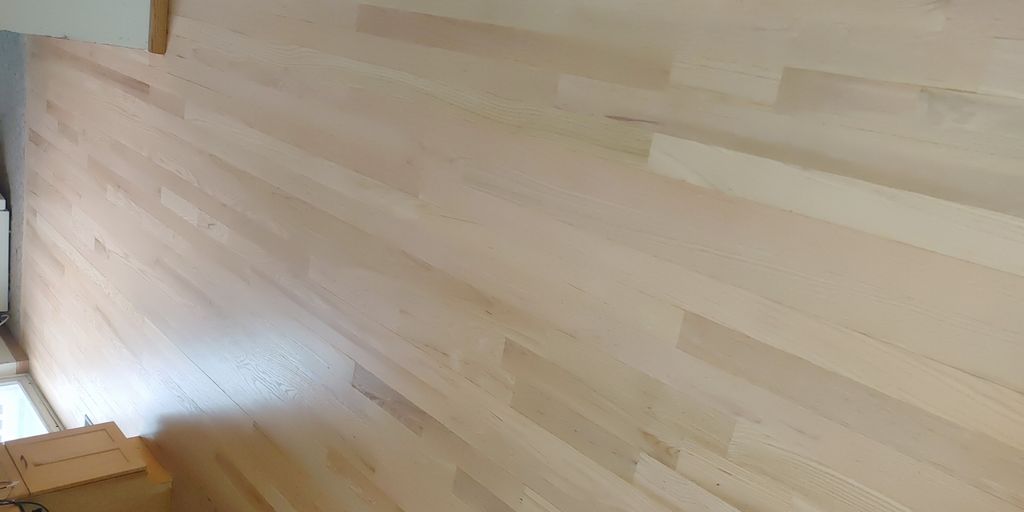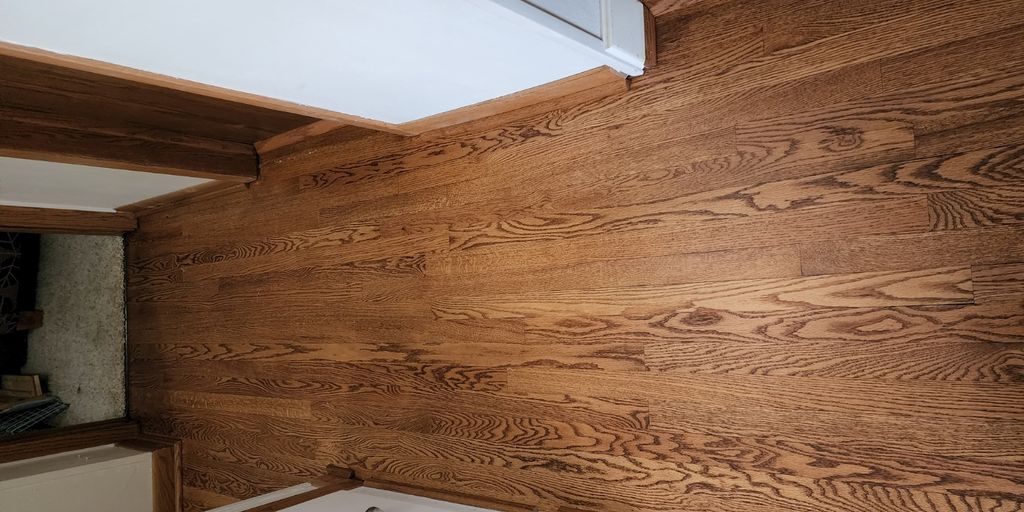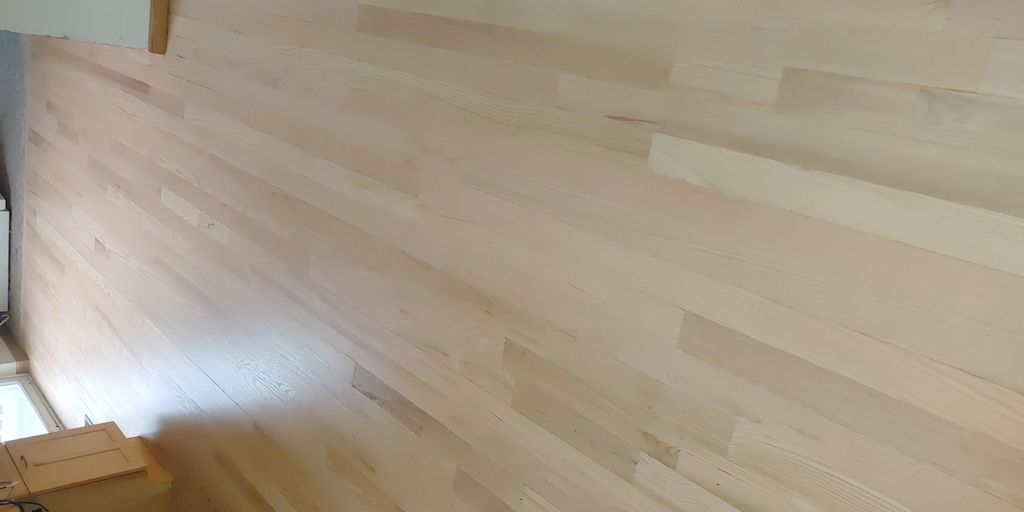When it comes to protecting the floors of your home, especially high-traffic areas like the garage, choosing the right floor protection is essential. Pro Coat offers a variety of options designed to meet different needs and preferences, ensuring your floors remain in top condition for years to come. In this article, we will explore some of the best floor protection solutions available, from high-performance coatings to versatile floor mats and tiles.
Thank you for reading this post, don't forget to subscribe!Key Takeaways
- Polyaspartic floor coatings offer deep penetration into concrete for superior protection against water, chemicals, and other elements.
- Polyurea floor coatings are professionally applied and provide long-lasting protection with a strong bond to the concrete.
- Interlocking floor tiles offer a versatile and easy-to-install option for garage floor protection.
- Epoxy floor coatings are a popular choice for their durability and resistance to various forms of damage.
- Garage floor mats provide a simple and cost-effective way to protect your floor from moisture and debris.
Polyaspartic Floor Coating
Polyaspartic floor coatings are renowned for their long-lasting finish and exceptional durability. This high-performance coating is comprised of professional-grade materials that are applied by trained pros using special equipment to deliver superior flooring protection. Unlike most cheaper garage floor protection products that provide a less effective topical surface bond, polyaspartic coatings penetrate deeper into the concrete, ensuring a more robust and enduring solution.
One of the standout features of polyaspartic coatings is their resistance to UV damage, making them an excellent choice for areas exposed to sunlight. This UV resistance is a significant advantage over other coatings, which can yellow or degrade over time. Additionally, polyaspartic coatings have an extended pot life, which makes them easier to install and helps improve adhesion to the concrete surface.
When comparing Pro Coat vs competitor brands, it’s clear that Pro Coat offers superior performance. Pro Coat better than Loba in terms of durability and finish, making it a preferred choice for many homeowners. The ease of application and the long-lasting finish are frequently highlighted in Pro Coat customer reviews, further cementing its reputation as a top-tier product.
For those seeking the best in floor protection, polyaspartic coatings by Pro Coat are a reliable and durable option. The UV coatings hardwood floor coating collection by Pro Coat Inc. offers innovative UV curable waterborne finishes dominating the industry with same-day solutions.
Polyurea Floor Coating

Polyurea floor coating is a high-performance solution comprised of professional-grade materials. This type of coating is applied by trained professionals using special equipment to deliver long-lasting flooring protection. Unlike cheaper garage floor protection products that provide a less effective topical surface bond, polyurea coatings penetrate deeper into the concrete, ensuring a more durable finish.
Polyurea floor coatings require more expertise and specialized equipment to apply properly, which is why these products are usually handled by professionals and cost more. Keep that in mind the next time a low-cost epoxy flooring kit catches your eye.
Advantages of Polyurea Floor Coating
- Highly Durable: Polyurea creates a durable seal to coat garage floors, making it a preferred choice for long-term protection.
- UV Resistant: Some types of polyurea are UV resistant, preventing them from yellowing over time.
- Flexible: The synthetic material is flexible, allowing it to adapt to the natural movements of the concrete.
Disadvantages of Polyurea Floor Coating
- Fast Curing Time: Extremely fast curing time can lead to a weaker bond and a greater chance of install imperfections showing.
- Reactive to UV: Aromatic polyurea is reactive towards UV radiation, which can cause it to change colors or break the bonding.
Polyurea coatings are not for those who want a quick and easy garage floor solution. They require a professional touch and a higher budget, but the results are worth it for those seeking a Pro Coat high durability finish.
Interlocking Floor Tiles
Interlocking floor tiles are an excellent choice for homeowners looking to protect their garage floors. These tiles are made from durable materials such as plastic or stronger PVC, ensuring they can withstand the wear and tear of daily use. One of the key benefits of interlocking floor tiles is their ease of installation. Unlike other flooring options that may require adhesives or mortar, these tiles feature interlocking teeth that make the installation process straightforward and hassle-free.
Aside from their cost-effectiveness and protective benefits, here are four other good reasons to consider interlocking floor tiles for your garage:
- They are a cost-effective option for covering up unattractive surfaces, especially if you have floor damage that is out of your price range to fix.
- They help minimize further surface damage from wear and tear.
- They offer a quick and easy way to upgrade your garage floor without the need for extensive preparation or professional help.
- They are available in various designs and colors, allowing you to customize the look of your garage floor.
Interlocking floor tiles are the best alternative to Loba 2K Invisible for those seeking a durable and easy-to-install flooring solution.
While interlocking floor tiles won’t remedy existing issues with garage floor degradation, they will help protect your floor from further damage. Consider adding these tiles to your wood floor sealer collection by Pro Coat Inc. featuring acrylic waterborne, artisan series, and wood & masonry sealers. Contact for UV, water-based, and oil-based coatings.
Epoxy Floor Coating
Epoxy is perhaps the most widely used garage floor coating material, holding plenty of advantages depending on what you’re looking for. Epoxy is inexpensive and can even work in DIY applications — but there are downsides to this popular floor coating.
Epoxy floors generally don’t last and maintenance can be tedious — especially if applied using a DIY method. Epoxy floors also aren’t UV resistant, so they yellow over time and are generally more susceptible to damage and delamination. The worst part about epoxy floor coating is the week-long cure time. Other floor coating options have much shorter cure times and longer durability.
If you’re thinking of taking the DIY route when it comes to your garage floor protection upgrade, an epoxy floor coating kit is probably what you’ll buy. We’ve all seen them in home improvement stores. Their box advertising promises to work wonders on your garage floor and boasts of how easy the product is to work with.
The catch is that while epoxy coating can do a serviceable job protecting your garage floor and updating the room’s decor, they fall well short of polyurea coatings in every measure of how the coating looks and keeps your garage floor protected.
Applying any coating product requires thorough preparation of the floor surface, properly mixed materials, and usage of materials within a certain amount of time. Epoxy is thick like molasses, meaning it won’t get into every crack and crevice of a concrete garage floor — leading to adhesion problems down the road. Polyaspartic has the consistency of water and polyurea is even thinner, making it easier to soak into the concrete pores.
Garage Floor Mats
Garage floor coverings like mats, rugs, parking pads, and trays tend to be used more in areas that get snow, which leaves garage floors a wet sloppy mess during the winter. These products can help protect your floor, but once again, the protection they offer is fairly superficial and limited.
The function that’s most appealing about them (other than their low cost) is they’ll help contain excess moisture from rain or melted snow and ice that’s tracked in by vehicles. That keeps your garage floor cleaner.
With so many things in your daily routine capable of causing wear and tear on a garage floor, why not start giving a little TLC to the flooring in this busy home space?
Professional coatings inc. quick order page offers a variety of surface cleaners, wood sealers, and finishes in different gloss levels and colors.
Garage Floor Paint
Garage floor paint applications are notorious for being a short-term floor improvement solution. The paint chips and flakes quickly and will need to be touched up or fully reapplied sooner rather than later.
Floor paint products do virtually nothing to protect a floor surface. Despite this fact, they’re one of the most popular options for homeowners looking to spruce up the look of their garage floor. Why? Once again, they’re cheap and fairly easy to apply yourself, although it’s not like you can just sweep your garage floor, pop open a can of paint, and start rolling it on.
Application Process
- Clean the garage floor thoroughly.
- Apply a primer if necessary.
- Paint the floor using a roller or brush.
- Allow the paint to dry completely.
- Apply a second coat if needed.
Pros and Cons
- Pros:
- Affordable
- Easy to apply
- Variety of colors available
- Cons:
- Short-term solution
- Chips and flakes easily
- Requires frequent touch-ups
For improved traction on steps, floors, porches, and ramps, consider using sure grip™ – anti-skid additive by professional coatings inc. exclusive formula for improved traction on steps, floors, porches, and ramps. compatible with water-based and oil-based coatings. buy now!
Concrete Sealer
Concrete sealers are a popular choice for homeowners looking to protect their garage floors. They provide a seal for the floor that can protect it from stains and water damage. However, sealers don’t perform at the same level as polyurea and epoxy floor coatings when it comes to protecting a floor. They don’t bond to concrete as well as higher quality coatings and also wear away faster.
Clear concrete sealers won’t hide blemishes from patches and repairs made to the floor before the sealer is applied. Tints can be used to add some color and may produce better visual results.
Concrete resurfacers, which are often confused with sealers, are intended more as a cosmetic fix for floors in need of a refresh. They are made up of a mixture of sand, Portland cement, polymer materials, and additional additives. A trowel, brush, or squeegee is typically used to apply them. The product’s natural cement grey color can be enhanced with decorative pigments to create a more dynamic floor look.
For a high-performance wood sealer, consider the procoat® artisan™ series wood sealer – a fast-drying formula ideal for residential, sports, and commercial projects. Family-owned procoat® offers American-made products with unmatched contractor support.
Rubber Floor Tiles
Rubber floor tiles are a durable option for protecting your garage floor. They provide a protective layer that helps minimize surface damage from wear and tear. Unlike some other types of floor coverings, rubber tiles do not require adhesives or mortar for installation, making them easy to work with. In addition to their durability, rubber floor tiles offer a cost-effective solution for covering up imperfections in your garage floor. Consider professional coatings inc. for a variety of coatings, cleaners, and equipment including nanowear™, bond™, amber plus™, dry hard™, pro-link crosslinker, and sure grip™.
Vinyl Floor Covering
Vinyl floor covering is a versatile and cost-effective solution for homeowners looking to protect their floors. It offers excellent durability and resistance to moisture, making it ideal for areas prone to spills and humidity. Additionally, vinyl flooring is available in a wide range of styles and colors, allowing you to achieve the desired aesthetic for your home.
Advantages of Vinyl Floor Covering
- Durability: Vinyl flooring is known for its long-lasting nature, capable of withstanding heavy foot traffic and daily wear and tear.
- Moisture Resistance: This type of flooring is highly resistant to water, making it suitable for kitchens, bathrooms, and basements.
- Easy Maintenance: Vinyl floors are simple to clean and maintain, requiring only regular sweeping and occasional mopping.
- Cost-Effective: Compared to other flooring options, vinyl is relatively affordable, providing great value for your investment.
Installation Process
- Preparation: Ensure the subfloor is clean, dry, and level before installation.
- Measuring and Cutting: Measure the area accurately and cut the vinyl sheets or tiles to fit the space.
- Adhesive Application: Apply the appropriate adhesive to the subfloor, following the manufacturer’s instructions.
- Laying the Vinyl: Carefully place the vinyl sheets or tiles onto the adhesive, pressing them firmly to ensure a secure bond.
- Finishing Touches: Trim any excess material and install baseboards or trim to complete the look.
Maintenance Tips
- Regular Cleaning: Sweep or vacuum the floor regularly to remove dirt and debris.
- Avoid Harsh Chemicals: Use mild cleaning solutions to prevent damage to the vinyl surface.
- Protect from Scratches: Place felt pads under furniture legs to avoid scratching the floor.
- Address Spills Promptly: Wipe up spills immediately to prevent staining or damage.
Vinyl floor covering is an excellent choice for homeowners seeking a durable, moisture-resistant, and cost-effective flooring solution. With proper installation and maintenance, it can provide years of reliable performance and aesthetic appeal.
Conclusion
Vinyl floor covering stands out as a practical and attractive option for various areas in your home. Its combination of durability, moisture resistance, and ease of maintenance makes it a top choice for many homeowners. Whether you’re renovating your kitchen, bathroom, or basement, vinyl flooring offers a reliable and stylish solution.
Garage Floor Containment Mats
Garage floor containment mats are an excellent solution for homeowners looking to protect their garage floors from moisture and debris. These mats are designed to capture excess moisture from rain, melted snow, and ice that is tracked in by vehicles, keeping your garage floor cleaner and safer.
One of the key benefits of garage floor containment mats is their ability to prevent water from seeping into the concrete, which can cause damage over time. However, it’s important to note that these mats will need to be emptied occasionally to drain the collected water. This task can be a bit of a chore, as the mats can become quite heavy when filled with water.
Advantages of Garage Floor Containment Mats
- Easy to install and remove
- Protects against moisture and debris
- Helps maintain a cleaner garage environment
Considerations When Using Containment Mats
- Regular maintenance is required to empty collected water
- Potential for increased condensation levels if not managed properly
For easy surface preparation, consider using procare® clean & prep™ – a water-based formula that requires no mixing and supports contractor needs with American-made quality products.
Conclusion
In conclusion, Pro Coat stands out as the premier choice for floor protection in your home, particularly for high-traffic areas like the garage. With advanced polyaspartic and polyurea coatings, Pro Coat offers superior durability, deeper penetration into concrete, and resistance to water, chemicals, and physical impacts. Unlike cheaper alternatives, Pro Coat’s professional-grade materials and expert application ensure long-lasting protection and a pristine appearance. Whether you’re a homeowner looking to enhance your garage or a business owner needing quick, reliable flooring solutions, Pro Coat delivers unmatched performance and peace of mind. Choose Pro Coat for the best in floor protection and experience the difference in quality and longevity.
Frequently Asked Questions
What is polyaspartic floor coating?
Polyaspartic floor coating is a high-performance coating made of professional-grade materials. It penetrates deeper into the concrete, creating a stronger bond that makes it more resistant to water, chemicals, and other elements that can cause damage.
How does polyurea floor coating differ from polyaspartic?
Both polyurea and polyaspartic coatings are high-performance and penetrate deeply into concrete. However, polyurea is known for its faster curing time and is often used in industrial applications.
What are interlocking floor tiles?
Interlocking floor tiles are modular tiles that can be snapped together to cover a floor. They are easy to install and provide a durable, protective surface for your garage floor.
Are epoxy floor coatings durable?
Yes, epoxy floor coatings are durable and provide a strong, protective layer over your concrete floor. They are resistant to chemicals, stains, and abrasions.
What are the benefits of garage floor mats?
Garage floor mats provide a simple and cost-effective way to protect your garage floor. They help contain moisture, dirt, and debris, making it easier to keep your garage clean.
Is garage floor paint a good option for protection?
Garage floor paint provides minimal protection compared to other options like polyaspartic or epoxy coatings. It is more of a cosmetic solution and may need frequent reapplication.
What is a concrete sealer?
A concrete sealer is a protective layer applied to concrete surfaces to prevent damage from water, chemicals, and other elements. It helps extend the life of your concrete floor.
Can rubber floor tiles be used in garages?
Yes, rubber floor tiles are a good option for garages. They provide a cushioned, non-slip surface that is durable and easy to clean.



